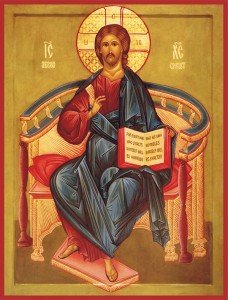 I have been sharing thoughts about the Gospel of Mark, considered the first of the Gospels that was formulated from oral and written traditions. We know that both Matthew and Luke based much of their narratives on the Gospel of Mark, although they composed them for particular audiences.
I have been sharing thoughts about the Gospel of Mark, considered the first of the Gospels that was formulated from oral and written traditions. We know that both Matthew and Luke based much of their narratives on the Gospel of Mark, although they composed them for particular audiences.
When Mark composes the narrative of Jesus’ death, he makes use of a range of Scriptures that depict God’s righteous servant put to death by evil forces. First and foremost, he interprets Jesus’ death through the lens of Isaiah’s “Suffering Servant”. In certain passages known as “the Songs of the Suffering Servant” (Isaiah 42:1-4, 49:1-7, 50:4-11, 52:13-53:12). Isaiah draws a portrait of God’s faithful servant who is tortured, mocked and killed by the obtuse kings of the world, who do not understand the identity of the one whom they are killing. They also are slow to understand that his death atones for their sins and that after death he will be raised up and exalted by God. (One thing you might do during the Great Fast is pick up your bible and look up these passages in Isaiah).
Mark, who was a practicing Jew, also draws on similar patterns in the Psalms. And he surely had in mind the opening of the Wisdom of Solomon, where “godless men” put “the righteous one” to death because his goodness truly makes their lives uncomfortable and because “he styles himself a child of the Lord” (Wisdom 2:13) and “boasts that God is his Father” (Wisdom 2:16). In this work, the righteous one is not only exalted by God but given immortality as well (Wisdom 2:23).
In general, the most significant background comes from the Wisdom writings. In Catholic tradition, there are seven Jewish Wisdom writings: Proverbs, Psalms, Job, Ecclesiastes, the Song of Songs, Sirach and the Wisdom of Solomon (Protestant tradition does not include these same writings nor does the Jewish Bible). Each of these works is distinct, yet they share certain significant things in common. They are all set in domestic situations and everyday life. Many of them use a pithy, aphoristic style of speech. They are all focused on how to live a wise and holy life. They all agree that “fear of the Lord” [in the sense of holy awe] is the beginning of wisdom”. Most important, they of them (i.e., Proverbs, Sirach and the Wisdom of Solomon) imagine God’s Wisdom as a personified attribute that walks on earth and dwells among human beings. Is this not Who Jesus is?
